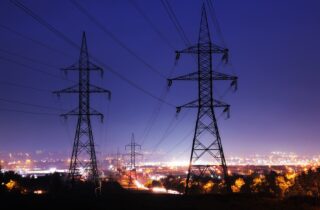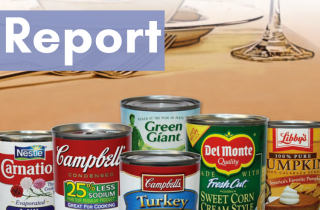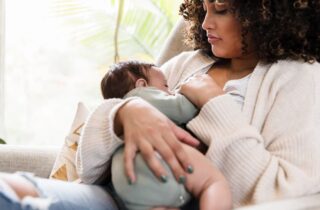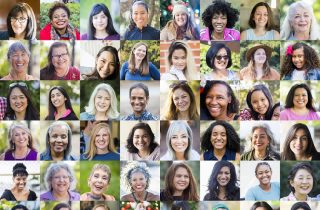Behind the Science: Ep. 1 Adult and Prenatal Chemical Exposures
Featuring Tracey Woodruff, Ph.D.
Director of the Program on Reproductive Health and the Environment, University of California, San Francisco, Professor in the Department of Obstetrics, Gynecology, and Reproductive Sciences and Philip R. Lee Institute for Health Policy Studies at UCSF.
Episode 1: Adult and Prenatal Chemical Exposures
Explore topics like:
- How am I exposed to chemicals?
- What are prenatal exposures?
- How are kids affected by exposure to chemicals?
- How can I reduce my own personal exposures?
- What more can I do to help make a change?
Video Transcription
We’re exposed to chemicals through air we breathe.
It’s in our food that we’re eating, in various products that we have in our house – whether it’s products that are stationary like our couch – but also products we use that we put on our bodies like lotion and shampoo or in the building materials we have and in the water we drink.
People really didn’t really appreciate that there was all these chemicals and these things that they were putting on their body that they just assumed were “safe.”
People are exposed to many different types of environmental chemicals or industrial chemicals, particularly during pregnancy and developmental periods.
We’re very interested in what happens immediately after pregnancy, so looking at our babies born too low in their birth weight – so low birth weight – are they born too early – so preterm birth.
One of our things is to take the data that’s out there and process it – make it understandable to people
One of the things we’re known for is talking about the growth in chemical manufacturing in the United States, which we have a very famous graph that shows how it’s gone up over 15-fold since the 1950s.
But the thing that’s changed is that doctors are now seeing this themselves.
Meaning that their patient population is changing in ways that can’t be explained by genetics.
We worked with a doctor who was an obstetrician, and she told me that at the beginning of her practice she’d have many regular routine normal visits with a few anomalies, a few challenging cases.
And slowly over time it shifted to where most of her cases were challenging, and she didn’t have any more normal visits.
More kids have autism, more kids have ADHD, more kids have childhood cancer.
And because they have seen the shift in their practice, they appreciate that there’s something environmental that’s going on.
So we’ve done a lot of work here at UCSF to engage with the physician community, which was been very successful now.
The National Physician Community of Obstetricians and Gynecologists recognized the importance of environmental chemical exposures, and they say that chemical exposures can both affect reproduction and development and that doctors should be actively engaged in reducing their patients exposure.
A lot of our health care in the United States is driven by when you’re sick.
And of course when you’re sick you’ve got to take care of it.
We want the best treatment possible for people who are sick.
And it doesn’t value the prevention side as much, so we really want less people going into the sick pipeline, but the money financial incentives are not quite aligned correctly for that.
So there’s a lot of things that you can do to reduce your own personal exposures.
There’re some very simple things you can do that don’t cost any money.
So things like washing your hands before you eat because a lot of chemicals get into dust and they hang around there.
Eating organic is a really good way to reduce your exposure to chemicals.
There’re cleaning solutions you can make in your home that are very simple that you can use.
Vinegar and water and baking soda are good ways to clean that can also minimize your exposure to chemicals.
Don’t microwave them plastic.
Don’t buy scented products.
It can feel a little bit overwhelming at times, but I also think that we’ve seen great changes happen because of the engagement of citizens.
To deal with chemicals and the environment or industrial chemicals, you really have to focus at a system-wide level.
You have to focus at kind of at the top because so many of the pollutants are being put out at places that only the government can intervene to stop them.
And speaking up in public ways or to public officials makes a difference.
Just even voting or connecting to organizations that represent your interests.
So there’s a whole range of ways that you can engage that still will make your voice heard to the people who are making decisions about that’s going to affect your health.
Donate
Support BCPP’s work to prevent breast cancer and save lives by uncovering the hidden scientific links between breast cancer and the environment.
Types: Video




